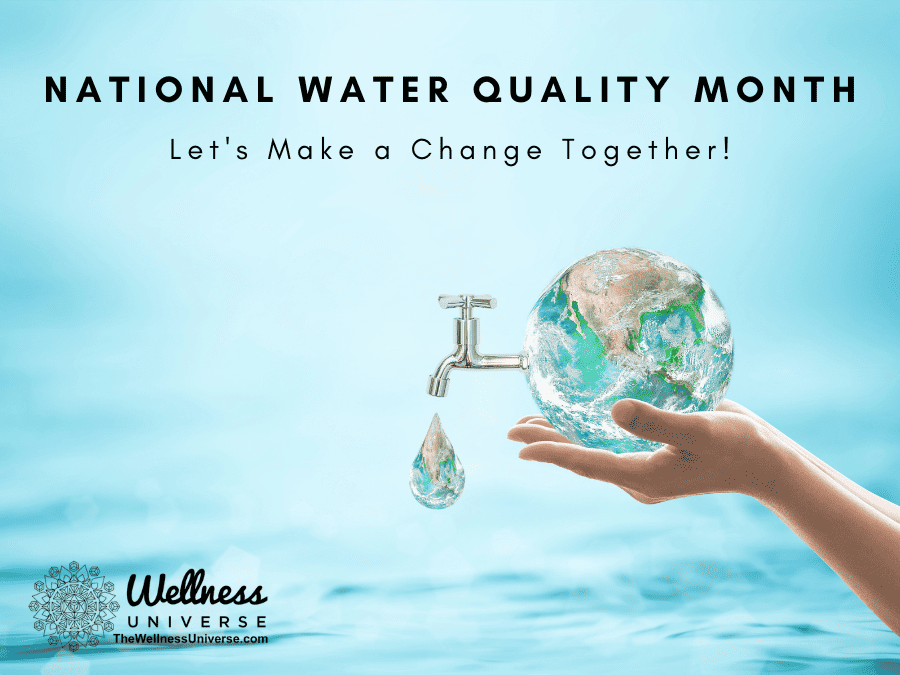Clean and safe drinking water is a fundamental requirement for sustaining optimal health and well-being. Regardless of whether you’re at home or in the office, having access to quality drinking water is paramount for staying hydrated and maintaining overall health. In this comprehensive blog post, we delve into the critical importance of clean drinking water and provide valuable insights on selecting the most appropriate water filtration system. By exploring various factors such as effectiveness, maintenance, and budget considerations, we aim to empower readers to make informed decisions to ensure their water is devoid of harmful contaminants. Furthermore, we underscore the significance of requesting municipal water quality reports as a proactive measure to understand and address any potential risks associated with the local water supply. Through this exploration, readers will gain a deeper understanding of the importance of clean drinking water and the actionable steps they can take to safeguard their health and well-being.
Understanding Water Quality
Tap water sourced from municipal supplies is susceptible to various contaminants, encompassing a spectrum from bacteria and viruses to heavy metals and chemicals. These contaminants, if present, can pose severe health risks upon consumption, potentially leading to a plethora of adverse effects including gastrointestinal distress and long-term health implications such as neurological disorders or even cancer. Therefore, it is imperative to implement regular testing protocols to assess the quality of tap water. By consistently monitoring water quality, individuals can remain vigilant about potential risks and take necessary measures to ensure that their drinking water meets safety standards. Whether through the installation of water filtration systems or adherence to recommended treatment methods, proactive management of water quality is paramount for safeguarding personal health and well-being in the long run.
Types of Water Filtration Systems
In the realm of water filtration, a diverse array of systems exists to cater to the specific needs of both home and office environments. These include:
- Reverse osmosis systems: These systems employ a semi-permeable membrane to remove a wide range of contaminants, including dissolved solids, heavy metals, and chemicals, by forcing water through the membrane under pressure.
- Activated carbon filters: Utilizing activated carbon, these filters effectively trap and absorb impurities such as chlorine, volatile organic compounds (VOCs), and unpleasant odors, enhancing the taste and odor of the water.
- UV water purifiers: UV purifiers disinfect water by exposing it to ultraviolet light, effectively neutralizing bacteria, viruses, and other microorganisms without altering the water’s taste or odor.
- Ion exchange filters: These filters work by exchanging ions in the water with ions of the same charge from a resin or other medium, effectively removing minerals such as calcium and magnesium, which contribute to water hardness.
- Distillation systems: Distillation involves boiling water to produce steam, which is then condensed back into liquid form, leaving behind contaminants such as heavy metals and microorganisms.
Each filtration system boasts its unique capabilities and effectiveness in targeting specific contaminants, thus improving water quality, and enhancing taste and odor. Understanding the nuances of each system empowers consumers to make informed decisions and select the most suitable option that aligns with their specific needs and preferences. Whether prioritizing contaminant removal, taste improvement, or overall water quality enhancement, choosing the right filtration system ensures optimal performance and satisfaction in both home and office settings.
Factors to Consider When Choosing a Water Filtration System
When embarking on the selection process for a water filtration system, it’s imperative to take into account several key factors to ensure that you choose the most appropriate option for your needs:
- Contaminant removal capabilities: Assess the specific contaminants present in your water supply and opt for a filtration system that effectively targets and removes them. Different systems excel at eliminating particular contaminants, so it’s crucial to match the system’s capabilities with your water quality concerns.
- System maintenance and upkeep: Evaluate the maintenance requirements associated with each filtration system and consider whether they align with your lifestyle and schedule. Some systems may necessitate regular filter replacements or cleaning, while others require minimal maintenance. Choose a system that you can feasibly maintain to ensure optimal performance over time.
- Cost and budget constraints: Determine your budget for both purchasing and maintaining the filtration system. Consider not only the initial cost of the system but also ongoing expenses such as filter replacements and energy consumption. Balance your budgetary constraints with the desired level of water quality and long-term benefits offered by the system.
- Space availability: Take into consideration the available space in your home or office when selecting a filtration system. Some systems, such as under-the-sink models or countertop units, may require minimal space, while others, such as whole-house filtration systems, may necessitate more significant installation space. Choose a system that fits comfortably within your available space without compromising functionality or convenience.
- Installation requirements: Determine whether professional installation is necessary for the chosen filtration system and factor this into your decision-making process. Some systems may require specialized plumbing or electrical work, while others offer straightforward installation options for DIY enthusiasts. Consider your comfort level with installation tasks and whether you’re willing to invest in professional installation services if needed.
By carefully considering these factors, you can make an informed decision and select a water filtration system that effectively meets your water quality needs while aligning with your budget, space constraints, and maintenance preferences.
Requesting Municipal Water Quality Reports
Municipal water quality reports serve as invaluable resources for gaining insights into the quality of your local water supply. These comprehensive reports detail the various contaminants present in the water, along with their concentrations, providing a clear overview of the overall water quality. By requesting and thoroughly reviewing these reports, individuals can make informed decisions about their water filtration needs and take proactive measures to ensure the safety of their drinking water.
The information provided in these reports enables consumers to identify specific contaminants that may be present in their water, such as bacteria, heavy metals, or chemicals. Understanding the types and levels of contaminants allows individuals to assess the potential health risks associated with their drinking water and determine the most appropriate course of action to address any concerns.
Moreover, reviewing municipal water quality reports on a regular basis is essential for staying informed about any changes or updates regarding water quality in your area. Environmental factors, changes in water sources, or infrastructure upgrades can all impact water quality, making it crucial to stay abreast of any developments that may affect the safety of your drinking water.
Ultimately, by requesting and actively reviewing municipal water quality reports, individuals can take proactive steps to protect themselves and their families from potential health risks associated with contaminated water. Armed with this knowledge, they can make informed decisions about water filtration options and ensure that their drinking water is safe and of the highest quality.
Importance of Regular Maintenance
Regular maintenance and servicing of water filtration systems are essential to ensure optimal performance. This includes cleaning and replacing filters, as well as sanitizing system components. Neglecting maintenance can lead to decreased effectiveness and potential health risks, underscoring the importance of regular upkeep.
Ensuring access to clean and safe drinking water is paramount for maintaining optimal health and well-being, whether you’re at home or in the office. Choosing the right water filtration system plays a pivotal role in achieving this goal. By comprehensively understanding the quality of your water supply and identifying specific contaminants present, you can make an informed decision when selecting a filtration system tailored to your needs. Additionally, staying informed about potential risks associated with water quality empowers you to take proactive measures to mitigate them effectively.
Requesting municipal water quality reports is a proactive step towards gaining insights into the quality of your local water supply. These reports provide valuable information about the presence of contaminants and their concentrations, allowing you to make informed decisions about water filtration needs. Regularly reviewing these reports enables you to stay abreast of any changes or emerging issues with water quality, ensuring that you can address them promptly.
Furthermore, prioritizing regular maintenance of your water filtration system is essential for ensuring its continued effectiveness and optimal performance. By adhering to recommended maintenance protocols, such as replacing filters and sanitizing system components, you can prolong the lifespan of your filtration system
By understanding water quality, selecting the appropriate filtration system, staying informed about potential risks, requesting municipal water quality reports, and prioritizing regular maintenance, you can effectively safeguard your health and well-being by ensuring access to clean and safe drinking water both at home and in the office.
All information, content, and material are for informational purposes only and are not intended to serve as a substitute for the consultation, diagnosis, and/or medical treatment of a qualified physician or healthcare provider. The information supplied through or on this page, or by any representative or agent of The Wellness Universe, is for informational purposes only and does not constitute medical, legal, or other professional advice. Health-related information provided through this website is not a substitute for medical advice and should not be used to diagnose or treat health problems or to prescribe any medical devices or other remedies. The Wellness Universe reserves the right to remove, edit, move, or close any content item for any reason, including, but not limited to, comments that are in violation of the laws and regulations formed pursuant to the Federal Food, Drug, and Cosmetic Act. None of the posts and articles on The Wellness Universe page may be reprinted without express written permission.
New Moon SisterCircles for Self-Care and Empowerment.
Come together under the New Moon, as we celebrate our connection to the lunar cycles, to the earth, and to each other, through movement, song, personal sharing, and magical play.
Learn more here –

see how our self-care books are helping thousands of people around the world. Digital and paperback books are available now.
Connect to the people that help you live your best life: The Wellness Universe
The Wellness Universe is your resource for health, wellness, well-being, and transformation. We serve and support professionals who make the world a better place and individuals and groups who seek their best life.
A woman owned company; having the vision in 2013, Anna Pereira launched the first directory in 2015 bringing together a community of members making the world a better place to be found by those seeking their best life. The Wellness Universe has grown since then to be a one-stop shop for total wellness support! We are a vetted community, online directory, book publisher, resource center, event producer, content platform, and so much more, supporting whole-health and well-being on a global scale.
The Wellness Universe is a home that connects industry professionals in the health, wellness, and well-being fields to seekers of total well-being. WU provides our WU World-Changer members with peer support, Wellness Universe produced events (live and online), projects, visibility, business mentoring, and community. Through The Wellness Universe our WU World-Changer members serve WU Friends, seekers of health, wellness and transformation, with coaching, workshops, content and more.
The Wellness Universe provides individuals and groups seeking their best lives with access to our members, wellness content, educational resources, and guidance in all areas of wellness to transform visions of how they want to live life into the life they experience.
Through the directory, WU Featured Blog, SoulTreat wellness retreat, Self-Care Books, group well-being programs, and online learning center, The Lounge, The Wellness Universe provides many avenues to support whole health, mind, body, spirit and planet.
Join us today! Wellness Professional or Seeker of Your Best Life





I am really impressed with your writing skills and also with the layout on your blog. Is this a paid theme or did you modify it yourself? Anyway keep up the nice quality writing, it is rare to see a great blog like this one today..
What is ProNerve 6? ProNerve 6 is your complete arrangement made to address the multifaceted necessities of nerve wellbeing